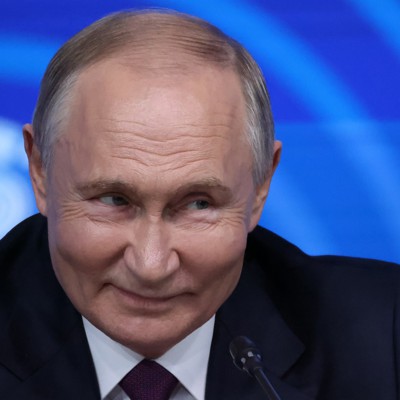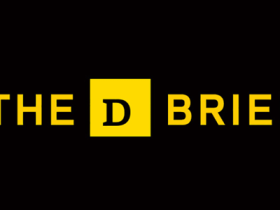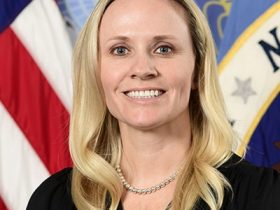In the clearest sign yet that the White House could soon abandon support for Ukraine, President Donald Trump on Wednesday renewed pressure on Ukrainian President Volodymyr Zelenskyy to accept a U.S.-brokered peace proposal that includes recognition of Russia’s 2014 annexation of Crimea, among other sacrifices—but little to no concessions for Russian President Vladimir Putin.
“Zelenskyy could have had peace long ago by giving up Crimea,” Trump wrote on Truth Social. “That ship has sailed.”
Trump’s framing puts him in direct opposition not just to the current Ukrainian government, but to over a decade of international law, diplomatic precedent, and bipartisan U.S. policy. But a former diplomat and leading Ukraine analyst said it’s not too late for Trump to pursue a different approach, salvage negotiations, and set up the conditions for a more lasting ceasefire by offering more support for Ukraine and maintaining pressure on Russia.
Trump’s post Wednesday followed similar statements earlier in the day by Vice President J.D. Vance, who is traveling in India.
“We’ve issued a very explicit proposal to both the Russians and the Ukrainians, and it’s time for them to either say yes, or for the United States to walk away from this process,” Vance told reporters.
The deal greatly favors Russia and puts Ukraine in a vulnerable position. It would “freeze” the current front lines of the conflict, leaving Russian forces deep inside of Ukraine’s territory, prohibit Ukraine from ever joining NATO, and essentially demand Ukraine cease any military efforts to regain control of Crimea. Trump, in his post, said, “Nobody is asking Zelensky to recognize Crimea as Russian territory.” But the implication is that Ukraine would be alone in pursuing some sort legal remedy.
Ukrainian leaders responded with swift and unequivocal rejection of the proposal.
“There is nothing to talk about—it is our land, the land of the Ukrainian people,” Zelenskyy said in a nationally broadcast interview April 22, as reported by AP.
High-level peace talks scheduled in London were downgraded after U.S. Secretary of State Marco Rubio canceled his participation. Still, Ukrainian officials engaged in discussions with U.S. envoy Keith Kellogg, and Zelenskyy’s chief of staff reiterated Ukraine’s unwavering position on sovereignty and territorial integrity during these talks.
Zelenskyy described those discussions as promising. But Kellogg, long known as a staunch defender of Ukraine’s sovereignty and a resolute Russia hawk, is less influential in the administration than Trump’s Russia envoy, former real-estate developer Steven Witkoff, who has embraced Russia’s demands, repeated false Russian talking points, and reportedly has business dealings with Leonard Blavatnik, a Russian-born billionaire sanctioned by Ukraine for his ties to Putin’s government.
“Witkoff continues to be so visibly outplayed by the Russians,” Daniel Fried of the Atlantic Council, who served as assistant secretary of state for European and Eurasian affairs, told Defense One on Wednesday. “Witkoff clearly does not understand the detail, the substance of the issue. He’s made that clear by accepting the Russian arguments at face value, which you should never do,” he said.
Trump still has an opportunity to make a ceasefire work, Fried said, “if it consists of a ceasefire in place and security for Ukraine.” He said a U.S. recognition of Crimea as Russian would be “a terrible idea…utterly unnecessary, damages almost a century of US foreign policy,” and noted the White House has shown its willingness to reverse course on other policy matters.
Zelenskyy and other Ukrainian officials have pointed out repeatedly that Ukraine’s constitution, let alone Ukraine’s parliament, would never allow for a surrender of Ukraine’s territory, nor could the country hold elections while citizens are living under Russian occupation.
Said Fried, “If [the final negotiated outcome] appears to be a surrender of Ukraine that is consigning them to a gray zone of insecurity, then the message is: Putin can have the rest of it at a time of his own choosing.”
What’s at stake, he says, is a heightened risk of a replay of 1938, wherein Germany signed an agreement with Czechoslovakia, the Munich agreement, effectively allowing German leader Adolf Hitler to annex a portion of Germany’s neighbor. Six months later, Hitler broke the agreement and attacked the rest of Czechoslovakia.
“Munich analogies have been overused and overused for 90 years. Now it actually applies,” Fried said.
George Barros, who leads the Russia and geopolitical intelligence teams at the Institute for the Study of War, told Defense One: “The U.S. position is puzzling, as it doesn’t advance President Trump’s stated objectives of achieving an end to war in Europe and a robust peace. The United States rewarding Putin’s annexation of Crimea and removing the brakes from Russia’s defense industrial base through sanctions relief, while not also increasing deterrence in Europe, is not a path to peace through strength. It will embolden Putin and Putin’s way of war.”
Fried and Barros agreed that continued pressure on Putin—something that’s largely missing from the current White House approach—could make a big difference, because Putin is not in as strong a position as some believe.
“Russia at its current rate of advance is not capable of seizing Donetsk or Zaporizhia regions anytime in the next two years. We have reason to believe that the Russian position will only continue to weaken as Russia impales itself on a well-armed Ukraine,” Barros said. “Putin has vulnerabilities we are either overlooking or choosing to not leverage. Protracted war has greatly degraded the health of the Russian economy and destroyed much of Russia’s conventional military. Now is the time to compel Russia to make concessions so Russia can evade difficult decisions Putin would rather not have to face. Putin is betting on the U.S. letting Russia off the hook despite Russia’s own precarious position.”
Also on Wednesday, Putin gave the world a glimpse of his long-term plan during a meeting with Russia’s military commission, where he called for accelerated expansion of drone manufacturing and the formalization of drone warfare in the Russian military, as well as the development of new capabilities. He gave no indication of easing military spending, even though they are harming Russia’s economy.
That indicates Russia will continue aggressive military modernization and advanced capability development at current government funding levels, regardless of any breakthrough diplomatic outcome related to Ukraine, Sam Bendett, advisor in Russian studies at CNA, told Defense One. That sets him up for a renewed military assault in a few years time.
“None of what he said is particularly new, regarding adapting military education and military regulations. Russian military bloggers and commentators were screaming about this on their Telegram channels for two years now.”
Read the full article here








Leave a Reply